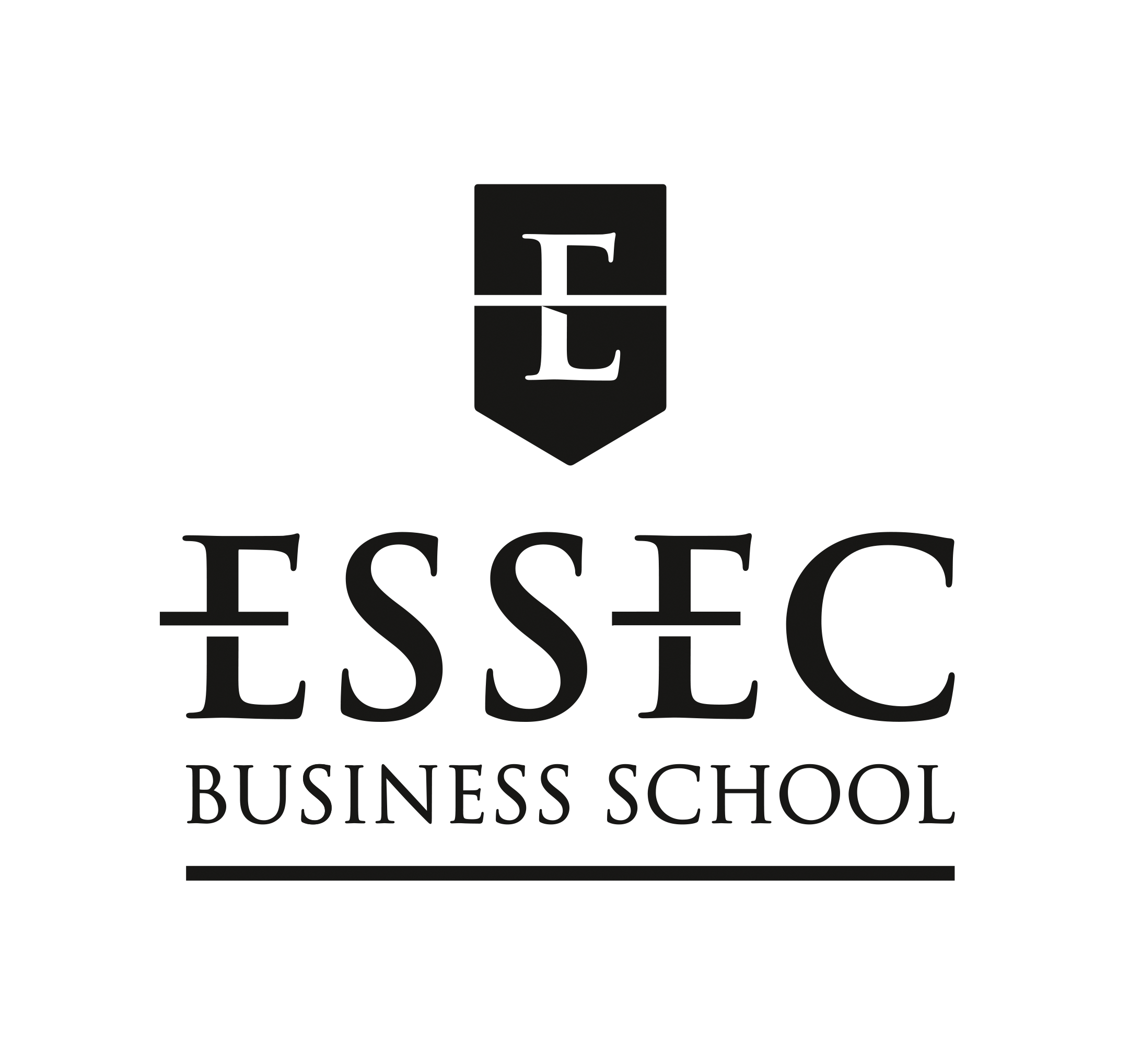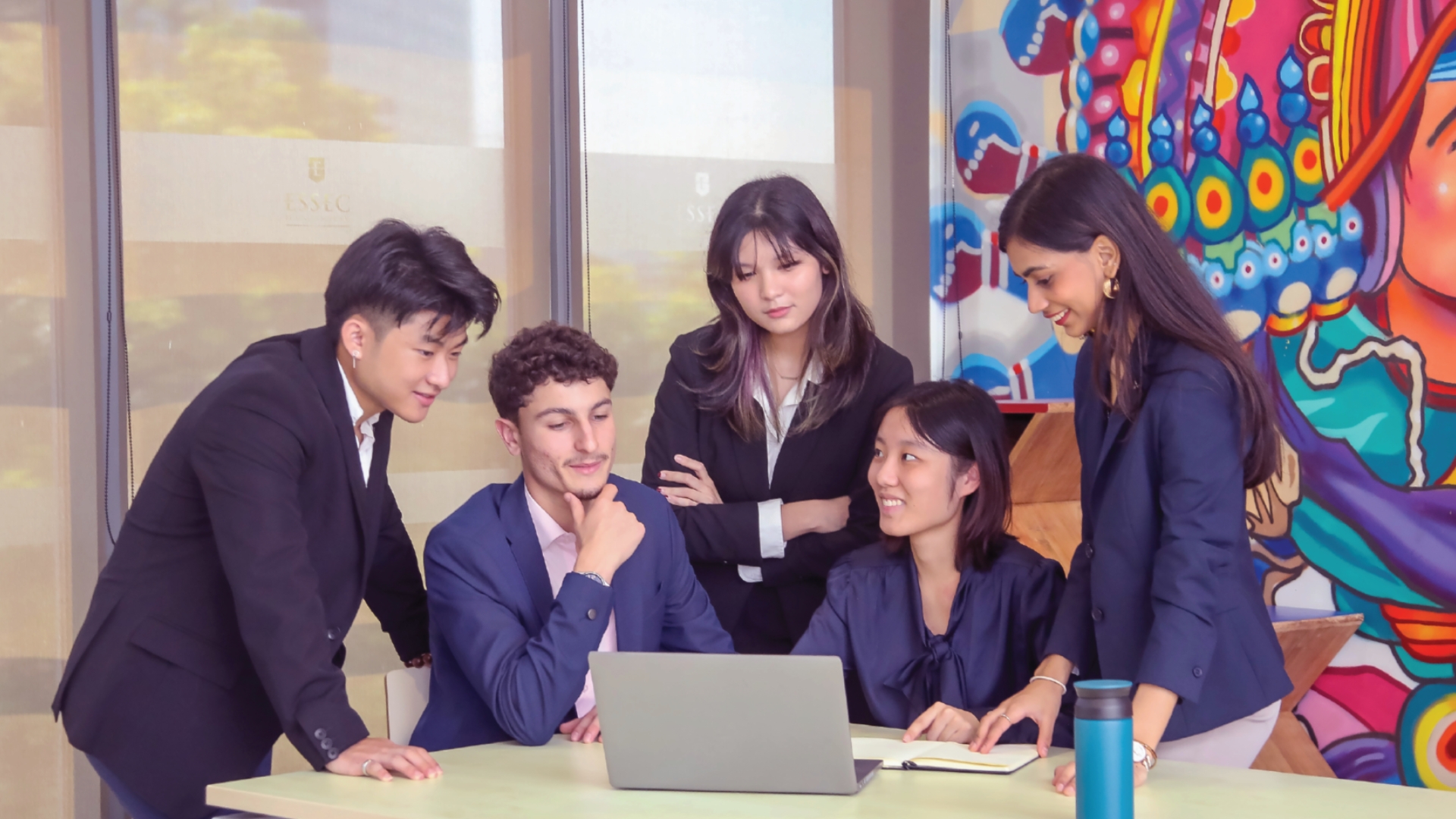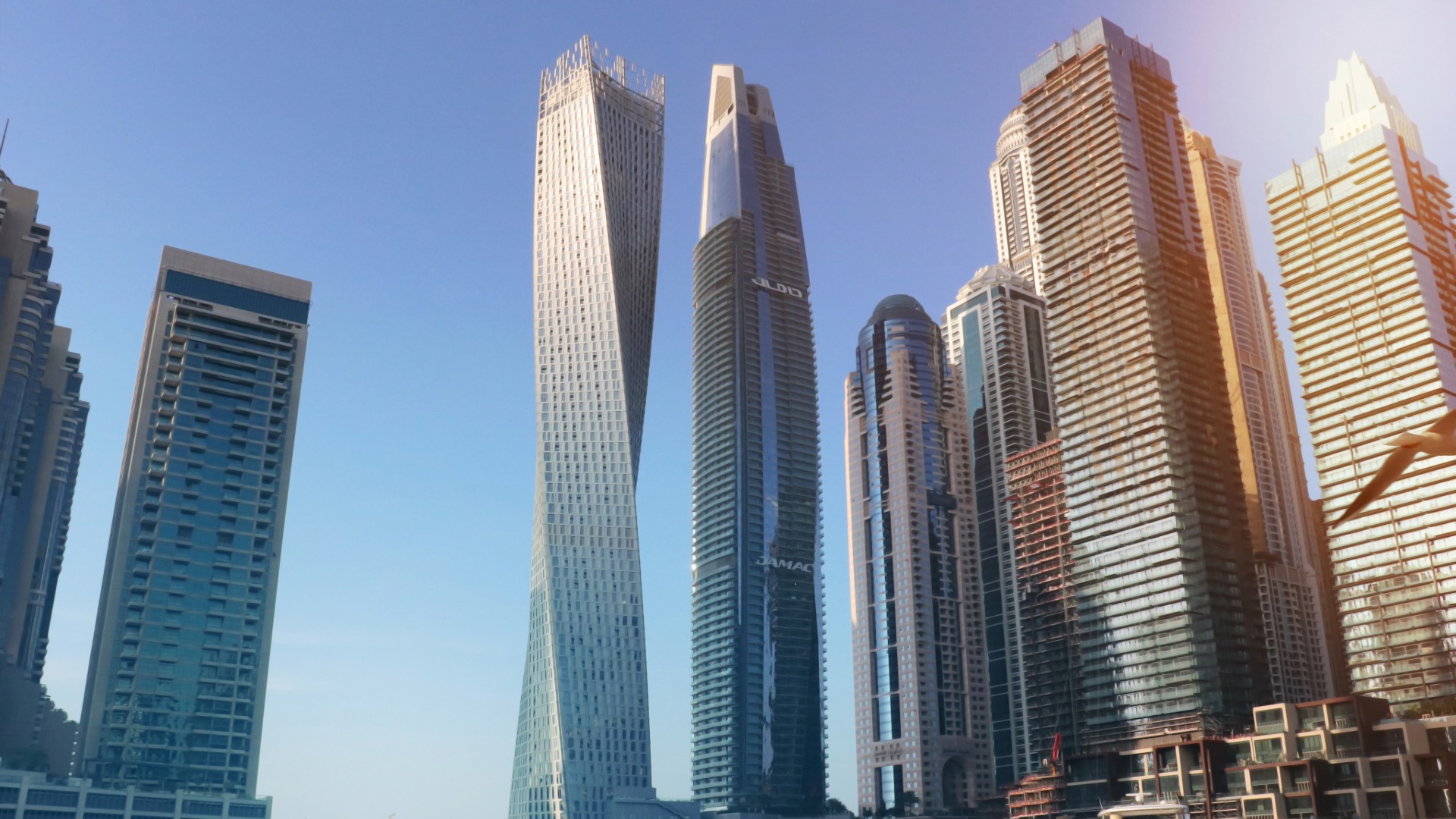If global temperatures continue to rise, rising sea levels will flood coastal cities, mass habitat extinction will occur, and threats to food security will be consequences for the world.
But to turn the tides of climate devastation, it is crucial not to be mired in the “doom and gloom,” Sebastian Sohn, Director of Aurexia Consulting’s Singapore office, declares.
Instead, he emphasizes: “We are in a position to make decisions and make things happen as a global community.”
“Banks and asset managers have the power to allocate capital to projects, activities, industries, and companies that are helping transform the economy to become more sustainable,” he explains.
“With regulations around ESG, risk management, and by supporting their clients with sustainable finance products and services, financial services can guide businesses in the right direction,” he explains.
This is a message he hopes Master in Strategy and Management of International Business (SMIB) students at the ESSEC Asia-Pacific campus will take away from his class on sustainable finance.
Sustainability: From Afterthought to Business Priority
Sohn began teaching sustainable finance to SMIB students as part of Aurexia Consulting’s long-standing global collaboration with ESSEC Business School.
With almost two decades of experience in the financial services sector, he is arguably the perfect person for the role.
Sohn began his career supporting clients from the finance sector with regulatory and prudential challenges.
For the last decade, he has devoted his time to sustainable finance and built stellar credentials in advising clients on sustainable finance products and services, ESG, environmental risk management, and more.
He recalls that in the early days, “bankers were looking at financial objectives and risks; they didn’t care too much about the environment.
From their perspective, they could finance a coal company, but it wouldn’t be their coal or their mining—they weren’t the ones contributing to emissions.”
Today, the landscape has changed vastly. “Banks and asset managers now understand that environmental, financial, and strategic risks are closely related,” Sohn says. “Even if students don’t want to go into finance, it’s important to understand what investors and stakeholders expect regarding sustainability.”
Educating the Next Generation
By teaching sustainable finance at ESSEC Asia-Pacific, Sohn hopes to educate tomorrow’s managers and business leaders and equip them with the tools to steer company activities toward a more sustainable future.
He shares that to do this, his module begins with answering the question of “why” leaders need to focus on sustainability before delving into the global approaches to the topic and eventually narrowing its focus to the financial sector.
Having worked in Europe, Hong Kong, and mainland China before coming to Singapore, Sohn brings diverse experiences and stories to bring theories to life in the classroom.
Aligned with ESSEC Asia-Pacific’s emphasis on learning by doing, he also enjoys letting students debate real-world case studies so they may better grasp the potential tradeoffs between environmental and social topics.
The Advantages of Being at ESSEC Asia-Pacific
Particularly encouraging for Sohn is how passionate SMIB students are about sustainability.
“They understand there’s a problem out there, and when they’re building their careers, they want to know how their company affects the problem, whether it’s part of the solution or adding to the problem,” he muses, noting that the sustainable finance module was developed due to the overwhelming response from students during Aurexia’s professional talk on campus.
He adds: “It’s been a good experience to learn how students think about sustainability and to be able to share what I’ve learned about them with my clients.”
Sohn also observes that there are significant advantages for students at the ESSEC Asia-Pacific campus, namely because of the diversity of the student body.
With students hailing from Europe, Asia, and the Americas, there are many different perspectives to bring to classroom discussions, making them more lively and insightful.
This is particularly important as overcoming the environmental and social challenges “requires global collaboration”, Sohn says. He feels that working with other groups and decision-makers is something that SMIB students are well-equipped to tackle.
“Students should make the most of this international experience by working with others from different cultural backgrounds and areas of study. Take the time to learn more and develop a global mindset,” he advises.
RELATED POSTS
Students from Southeast Asia on Dean’s List
Three Southeast Asian Global Bachelor of Business Administration (BBA) students—Éloïse Le, Janice Augustine, and Olivia Gunawan—achieved Dean's List…
What ESSEC SMIB Students Learned from Vietnam’s Top Companies in Just 5 Days
ESSEC Master in Strategy & Management of International Business (SMIB) students spent five impactful days in Ho Chi Minh City, gaining real-world…
Bridging Tomorrow: ESSEC-CentraleSupélec’s Revolutionary AI and Management Bachelor
Innovative program combines elite business education with cutting-edge engineering at Europe's prestigious institutions.
Specialized Prestigious Tracks: Elevating Global Business Excellence at ESSEC
ESSEC's Global BBA offers elite international tracks that transform students through immersive cross-continental learning experiences, prestigious…
The Asian Strategy Challenge: Real-World Consulting Experience
ESSEC's Asian Strategy Challenge transforms SMIB students into strategic consultants through intensive, real-world business problem-solving with…
Global Exposure: The Impact of Study Trips on SMIB Students
SMIB study trips to Bangkok, Dubai, and other global business centers provide transformative international exposure, developing cross-cultural…








